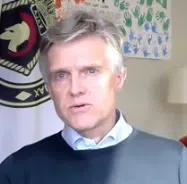
The Minister of Long Term Care says they are seeing absentee rates of between 20% and 30% at homes across the province.
Rod Phillips says he’s meeting regularly with his staff to determine gaps and possible solutions.
“The Ministry team is in contact on a daily basis with homes where there is an identified staff issue,” explains Phillips.
“There would be a handful of those right where they are identified as a concern. But overall, like every other workplace, we are seeing some of the pressures.”
Phillips adds the situation is worse in the hardest-hit areas of the province.
“Fortunately again, because we surged dollars for additional staff related to our four hours of care proposal back in November, there are additional staff there.”
Phillips says there are currently outbreaks reported in 186 homes in 30 of the province’s 34 public health units and expects the number will continue to rise with the highly contagious Omicron variant spreading at record levels.
There is one case in a long-term facility in the Kenora area.
Phillips notes the government has been proactive to keep residents and staff safe as new temporary measures were introduced to end 2021.
That includes:
-Access to long-term care homes by general visitors will be paused. Designated caregivers may continue to enter long-term care homes
-Day absences for all residents for social purposes will be paused
His comments came on the same day union leaders, health lobbyists, and all three opposition leaders gathered to demand an emergency session at Queen’s Park to deal with the staffing crisis.
They say 1,000 workers in long-term care are currently off sick because of the pandemic.
Service Employees International Union’s Sharleen Stewart says many others are suffering mental health issues.
“We call them heroes but forget that they are humans. Despite the welcome uplifting words from the public, our provincial government is holding them down and it’s dangerous.”
Vice-President of the Canadian Union of Public Employees, Michael Hurley, notes a further shortage of workers is expected when the pandemic ends.
“This exodus will be driven by frustration over on-going real wage cuts and the pervasive feeling that no one cares about their safety or that of their family.”
Hurley adds workers are exhausted, traumatized and depressed from the pandemic.
The coalition stresses that repealing Bill 124, which limit public sector pay increases, is a start to easing worker concerns.
Hurley says, “If you say that people are heroes and you congratulate them but your plan is actually to cut their wages by 4% in 2021, prevent them from bargaining anything that would address the mental health and other issues that they may have, you don’t encourage them to stay, you encourage them to look for other work.”
(With Files From Tim Davidson and Randy Thoms)



